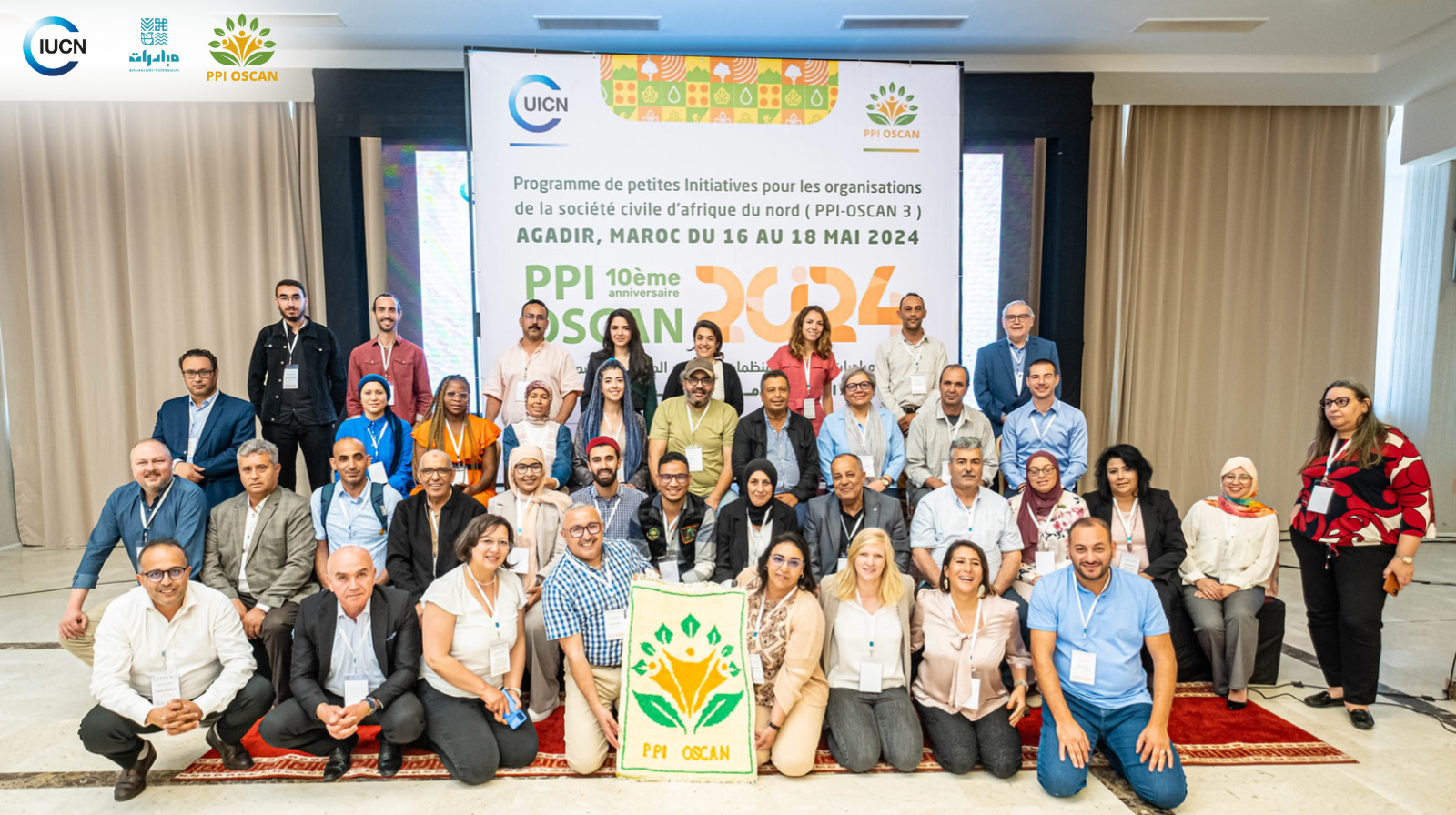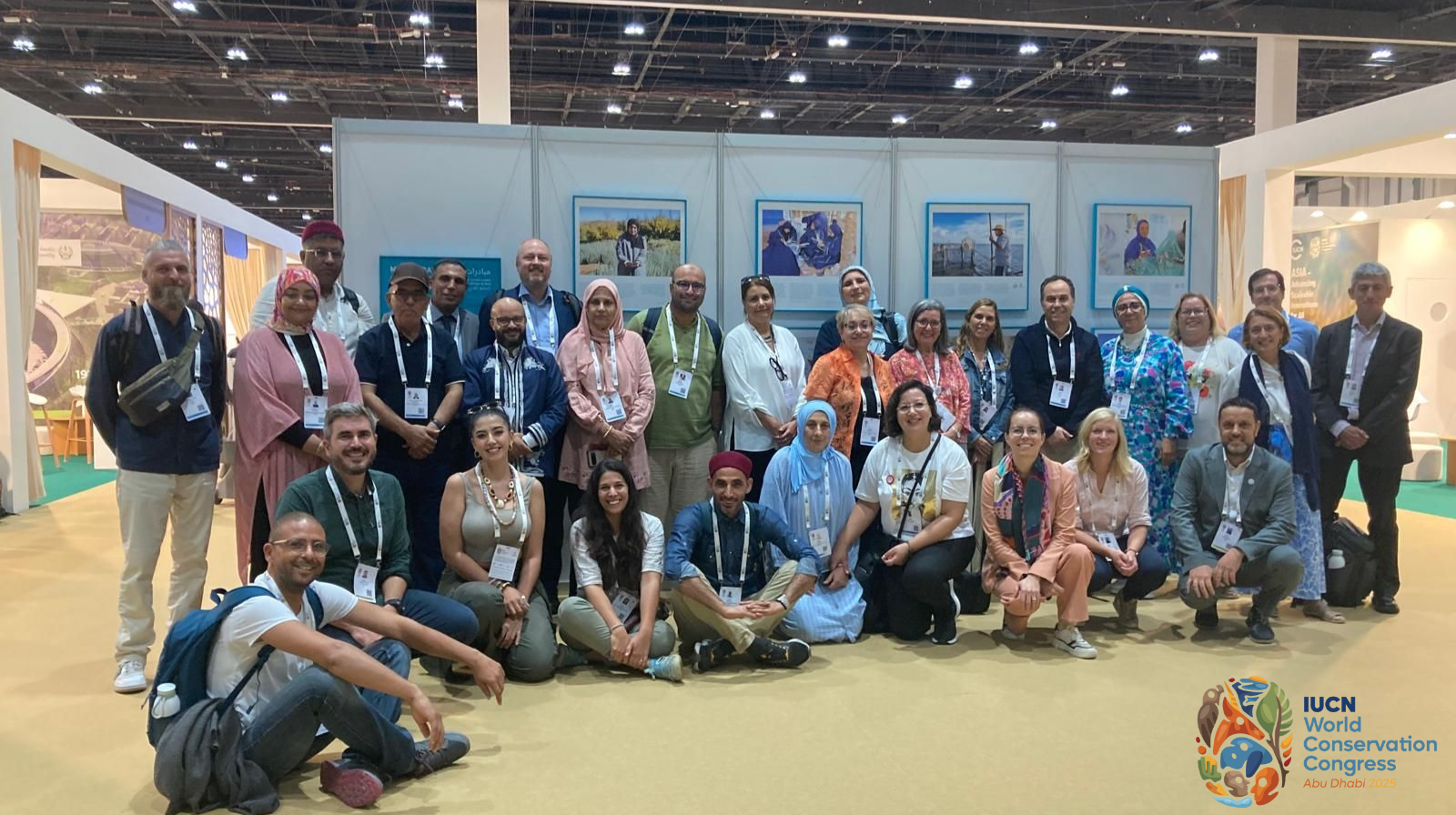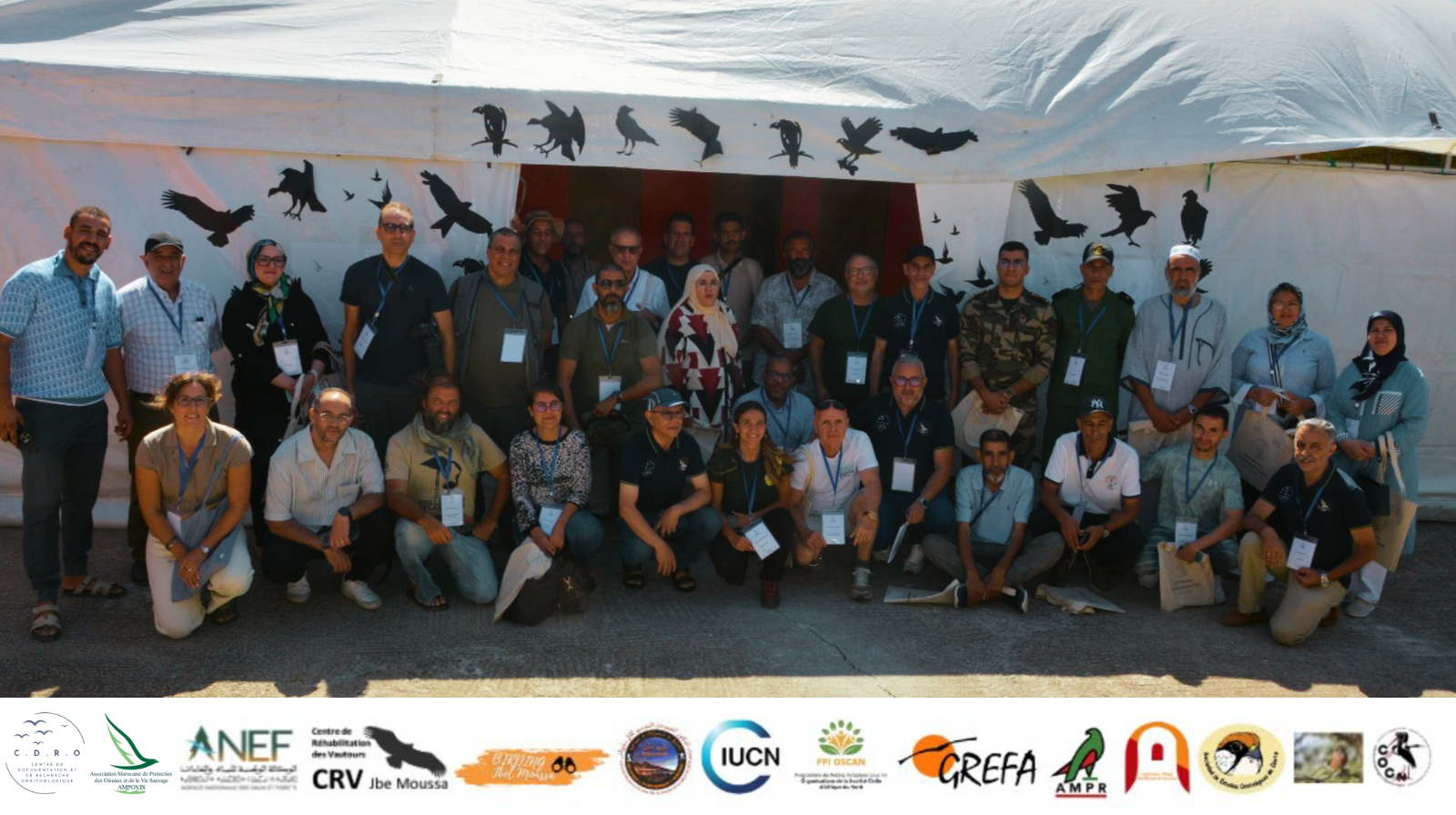Workshop on sustainable fishing in
Al Hoceima – Morocco
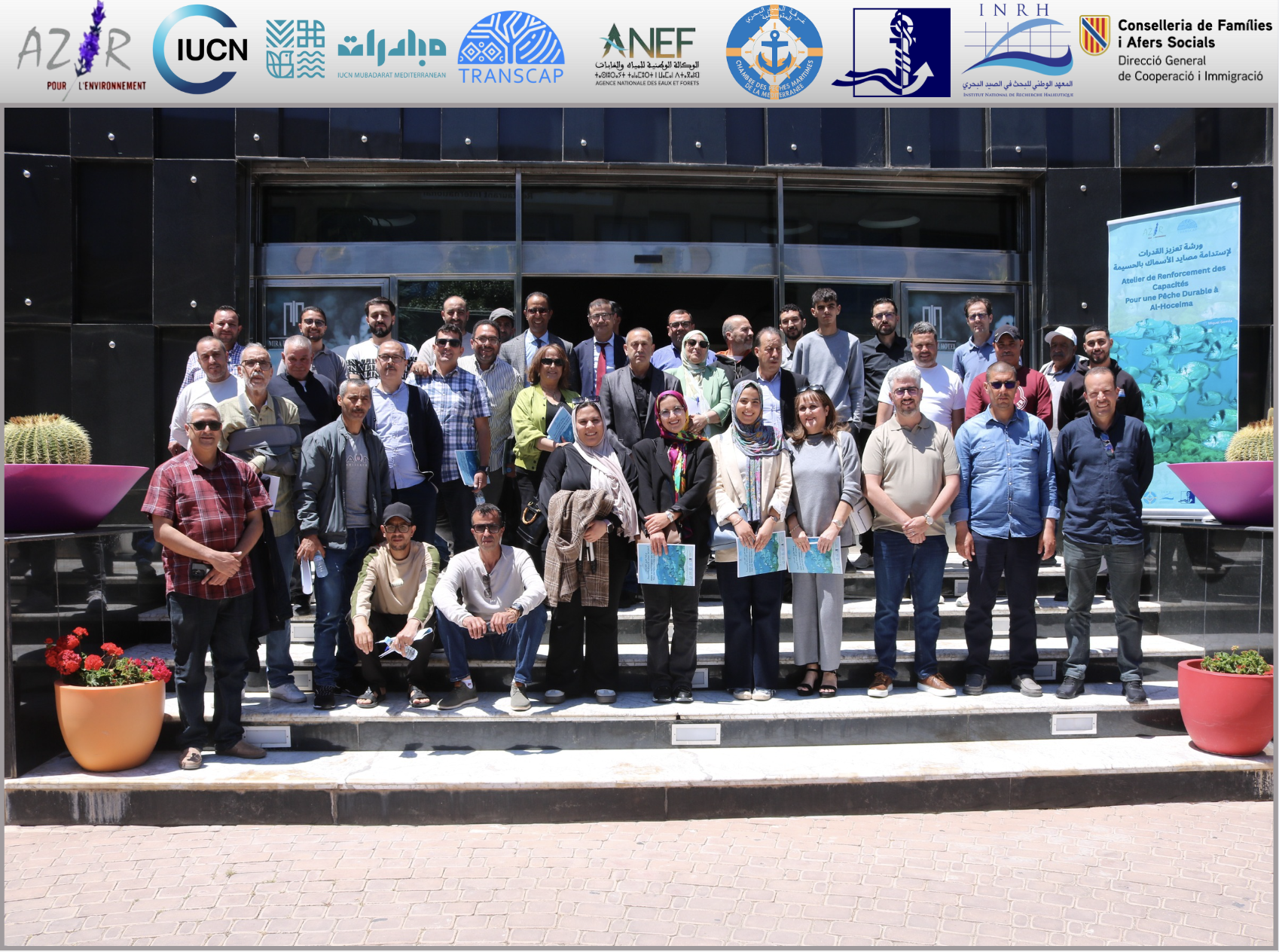
A workshop on sustainable fishing was held on May 16, 2025 in Al Hoceima, as part of the project “Contributing to improving the living conditions of the inhabitants of the douar of Bades”, implemented by the AZIR Association for the Environment.
Co-organized by AZIR pour l’Environnement, in partnership with the Institut National de Recherche Halieutique (INRH), the Département de la Pêche Maritime, and the Chambre des Pêches Maritimes de la Méditerranée (CPMM), this workshop is part of the TransCap 3 program, coordinated by IUCN Med and financed by the Balearic Islands Directorate General for Cooperation.
The event brought together over 30 participants from the public administration, civil society, local authorities, academia and the media, with a common objective: to improve the living conditions of artisanal fishermen in the province of Al Hoceima, while actively contributing to the preservation of marine resources.
An essential meeting in the face of the environmental emergency
A place of memory and sustenance, the port of Al Hoceima has always been at the heart of the local identity. But today, the sea that has shaped this town is in peril. Overfishing, pollution, destruction of marine habitats, interactions with certain species such as the bottlenose dolphin, the impact of climate change: the facts are clear. The aim of the workshop was to draw up a shared diagnosis of these threats and to co-construct viable courses of action.
“Our sea can wait no longer. Sustainable fishing is a necessity, not an option”, declared Mohamed El Andalossi, President of the AZIR Association, as he opened the day’s proceedings.
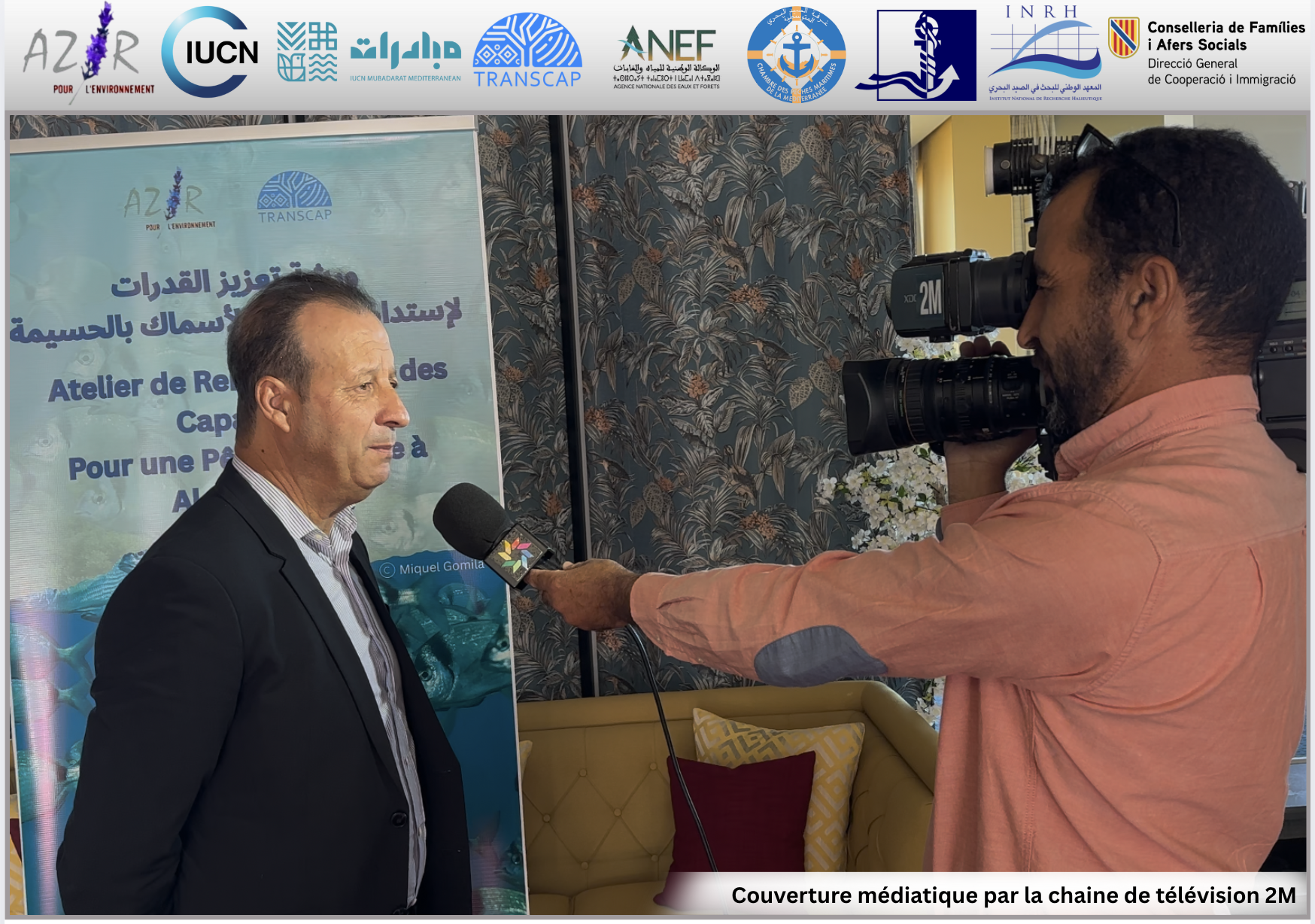
Five presentations to shed light on the issues at stake
Throughout the morning, five keynote speeches shed light on the many challenges linked to the sustainability of fishing in the Al Hoceima region, bringing together scientific, institutional, socio-economic and citizen perspectives.
Dr Najib El Ouamari, head of the INRH center in Nador, drew a stark conclusion: several marine species are currently overexploited and local marine ecosystems are under pressure. He proposed concrete measures, such as reducing fishing effort and introducing biological rest periods, which are essential for the regeneration of stocks.
For his part, Salah Eddine Rachidi, Maritime Fisheries Delegate in Al Hoceima, stressed the importance of enforcing existing regulations. He also stressed the potential of aquaculture as a sustainable alternative, capable of offering both food security and economic prospects.
Researcher Zakayae Koubaa provided valuable socio-economic insights, pointing out the current obstacles to sustainability: lack of coordination between players, precariousness of small-scale fishermen, lack of information and awareness. He also proposed several courses of action to improve the situation realistically and progressively.
Mohamed El Andalossi, President of the AZIR Association, spoke about the concrete benefits of responsible fishing. He shared inspiring examples of marine protected areas that have restored local biodiversity and strengthened the resilience of fishing communities.
Finally, a participatory session gave the floor to the people who are the first to be affected: the industry’s professionals. In a constructive atmosphere, fishermen expressed their concerns, shared their experiences and actively contributed to the formulation of practical recommendations for fairer, more sustainable management of the sea.
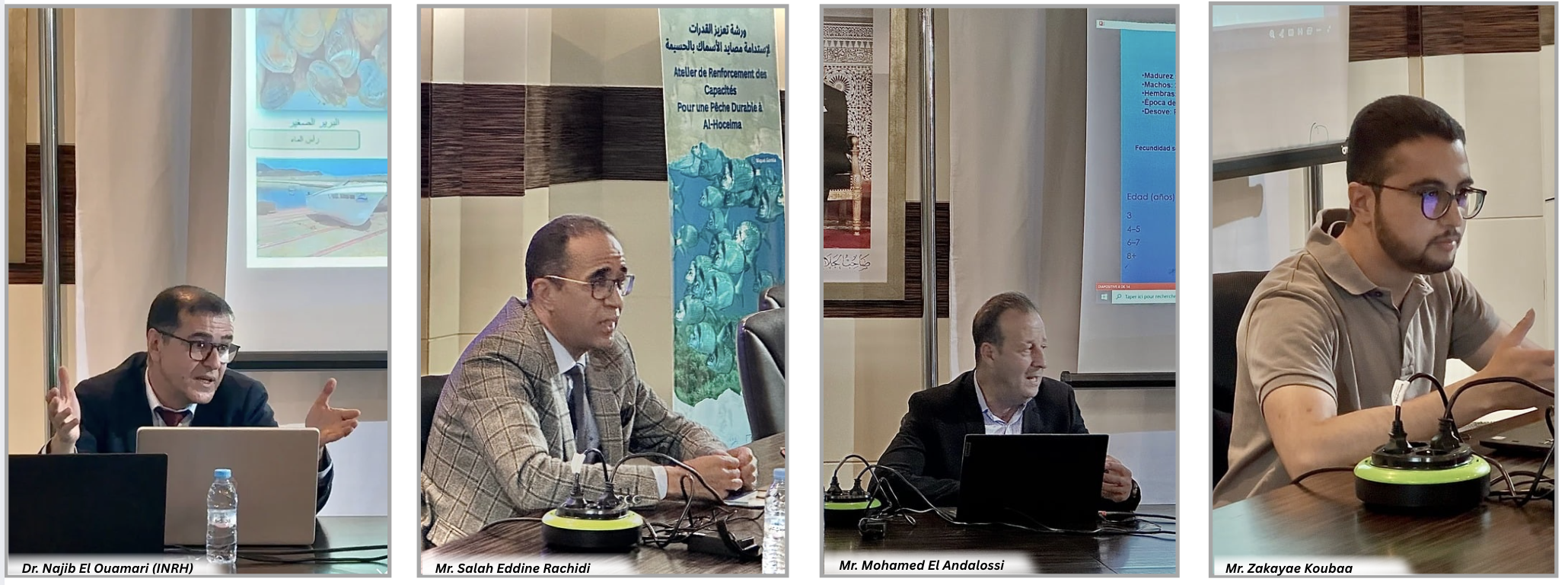
Towards sustainable fishing: concrete, inclusive proposals
At the workshop, a number of key recommendations were adopted to enhance the sustainability of the region’s fishing sector. It was stressed that it is essential to continue organizing regular Stakeholder workshop and consultation workshops for all stakeholders. It was also recommended that ongoing training programs be set up for fishermen, focusing in particular on environmental monitoring and sustainable resource management. The construction and immersion of artificial reefs was also proposed as a concrete measure to limit illegal trawling. Rigorous enforcement of current regulations was identified as a priority, accompanied by the implementation of awareness-raising campaigns targeting fishermen, consumers, restaurateurs and sales outlets, to promote respect for minimum legal sizes of fished species. To improve communication and awareness-raising, it was recommended that multilingual audiovisual content adapted to different local audiences be developed.
Finally, the creation of a permanent regional technical committee was proposed. This committee, bringing together fishermen, researchers, representatives of public administrations and local authorities, would be responsible for initiating a sustainable consultation process. Its mission would be to draw up marine protected area project focused on sustainable management of fishery resources, based on scientific data and taking into account local specificities. These recommendations reflect a collective determination to ensure the balanced and sustainable management of marine resources, with the close involvement of all stakeholders.
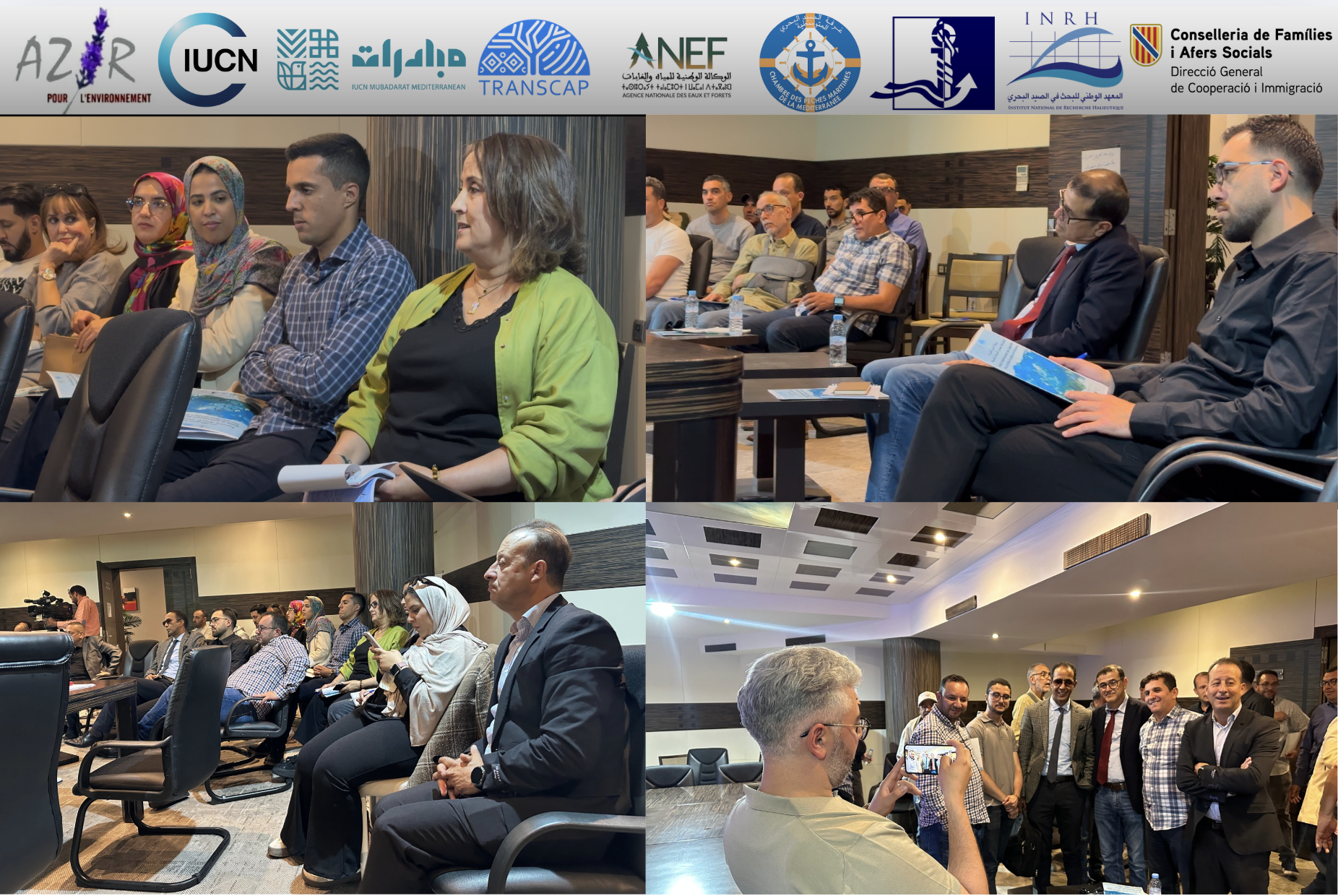
A sea to preserve for future generations
This workshop revealed much more than figures and rules: it highlighted a real collective dynamic and a sincere desire to change practices in order to build a sustainable future. In Al Hoceima, the sea is much more than an economic resource; it’s a living heritage, charged with culture, memory and identity.
As one participant put it: “Today, consultation is the key to preservation. Our fishing future depends on our ability to listen, understand and act together.
Thanks to the TransCap 3 program, it is clear that the transition to sustainable fishing is possible, provided that it is based on inclusive governance, sound scientific knowledge and, above all, the involvement of all local stakeholders. At the close of the workshop, participants expressed their commitment to continue working hand in hand to transform these recommendations into concrete actions, and to defend responsible fishing that respects both fishermen and ecosystems, in order to protect this precious heritage for future generations.
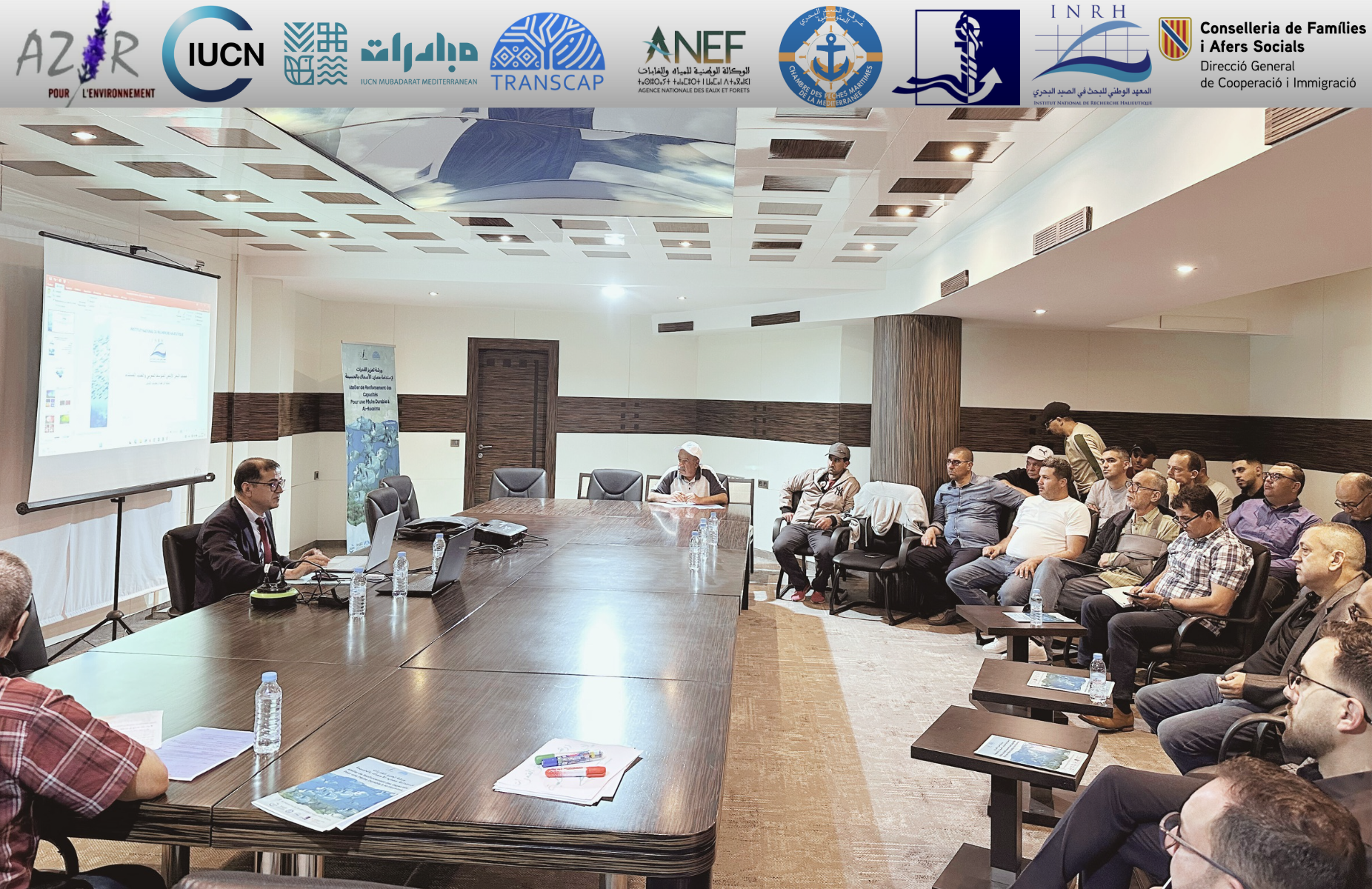

🔗Discover the projects benefiting from the TransCap program: mubadarat-uicn.org/projets/#TransCap
🔗Find out more about the AZIR Association for the Environment, follow their news here: facebook.com/aziralhoceima
🔗And to discover all our initiatives in favor of CSOs in North Africa: linktr.ee/mubadaratbyiucn

